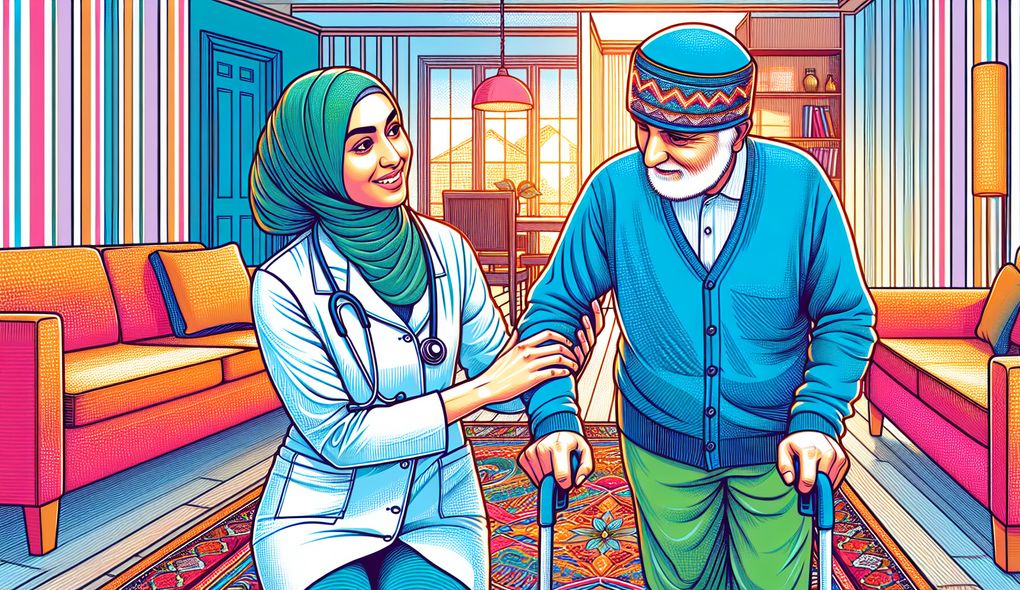How do you handle challenging or difficult patients?
INTERMEDIATE LEVEL

Sample answer to the question:
When it comes to handling challenging or difficult patients, I believe in taking a patient-centered approach. First and foremost, I remain calm and composed, understanding that their behavior may be a result of their medical condition or personal struggles. I try to establish open and honest communication with the patient, listening carefully to their concerns and ensuring that they feel heard and understood. I adapt my approach based on their individual needs and preferences, using empathy and compassion to build trust and maintain a positive rapport. If a patient becomes agitated or aggressive, I focus on de-escalation techniques, such as redirection and reassurance, to help them regain a sense of calm. I also rely on my problem-solving skills to address any specific issues or challenges they may be facing, ensuring that their safety and well-being are my top priorities.
Here is a more solid answer:
When faced with challenging or difficult patients, I rely on my strong interpersonal and communication skills to establish trust and understanding. For instance, I encountered a patient who was resistant to receiving care due to fear and anxiety. I took the time to empathetically address their concerns, explaining the procedures in detail and reassuring them of their safety. By actively listening and incorporating their preferences into the care plan, I was able to build a positive relationship and alleviate their anxieties. Additionally, I draw upon my problem-solving skills to navigate emergency situations. Recently, I encountered a patient who experienced a sudden fall. I responded quickly, assessing the situation, contacting emergency services, and providing immediate first aid until help arrived. Prioritizing the patient's well-being, I remained calm and offered reassurance throughout the incident.
Why is this a more solid answer?
The solid answer provides specific examples from the candidate's past experiences to demonstrate their ability to handle challenging or difficult patients. It showcases their interpersonal and communication skills in addressing a patient's fear and anxiety, as well as their problem-solving abilities in managing an emergency situation. However, it could further improve by incorporating the evaluation area of providing compassionate and patient-focused care, emphasizing the candidate's dedication to understanding and meeting the emotional needs of patients.
An example of a exceptional answer:
Handling challenging or difficult patients requires a combination of empathy, problem-solving skills, and dedication to compassionate care. In one instance, I cared for a patient with severe dementia who often exhibited agitated behavior. To create a calm and safe environment, I established a routine that incorporated their favorite activities and familiar objects. By understanding their triggers and using redirection techniques, I was able to minimize their distress and maintain their dignity. Moreover, I actively collaborated with the patient's family and healthcare team to understand their unique needs and provide personalized care. For emergency situations, I underwent additional training in crisis management and obtained certification in advanced first aid, enabling me to confidently handle critical incidents. Overall, I prioritize the physical and emotional well-being of my patients, striving to maintain their comfort, dignity, and sense of autonomy even in challenging circumstances.
Why is this an exceptional answer?
The exceptional answer demonstrates a deep understanding of the needs of challenging or difficult patients, emphasizing the candidate's ability to provide personalized and compassionate care. The example provided showcases their expertise in managing a patient with severe dementia and their dedication to creating a calm and safe environment. Furthermore, the answer highlights the candidate's commitment to continuous learning by obtaining additional training and certifications to handle emergency situations effectively. The answer effectively covers all the evaluation areas required for the position.
How to prepare for this question:
- Familiarize yourself with various communication techniques for handling challenging patients, such as active listening, reassurance, and redirection.
- Be prepared to provide specific examples from your past experiences where you successfully handled difficult patients and resolved challenging situations.
- Consider obtaining advanced certifications in first aid or crisis management to demonstrate your readiness to handle emergency situations.
- Stay updated with the latest research and best practices in home health care to enhance your ability to provide compassionate and patient-focused care.
- Practice self-care and stress management techniques to ensure your own well-being while dealing with challenging patients.
What are interviewers evaluating with this question?
- Strong interpersonal and communication skills
- Ability to provide compassionate and patient-focused care
- Problem-solving skills and the ability to handle emergency situations

